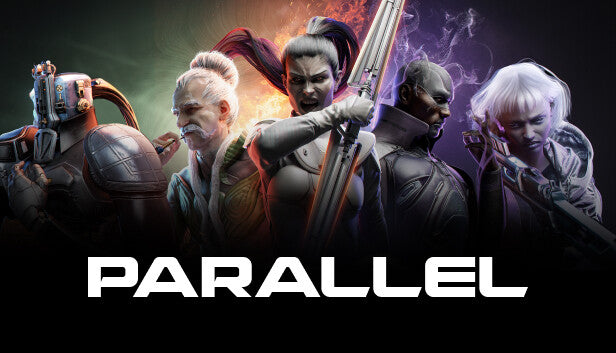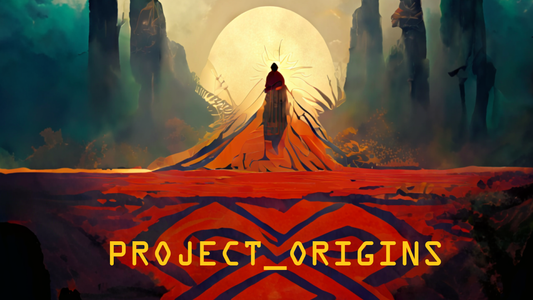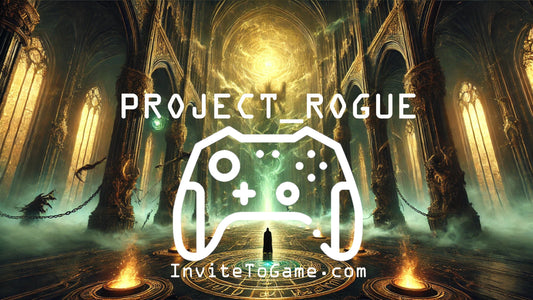
Parallel Trading Card Game
Joshua BrunhoffParallel: A Sci-Fi Trading Card Game Revolution
Parallel is a free-to-play digital trading card game (TCG) developed by Parallel Studios, blending classic card game mechanics with blockchain technology, set in a rich science fiction universe. Players collect and strategically deploy cards representing one of five distinct factions, known as "Parallels," each offering unique abilities and playstyles.
The Five Factions of Parallel
-
Marcolians: Originating from Mars, they harness solar energy and favor aggressive, fast-paced strategies.
-
Kathari: Inhabitants of Jupiter's moon Europa, they utilize cloning technology to build massive armies, overwhelming opponents with sheer numbers.
-
Augencore: Technophiles dwelling in space, focusing on unit enhancements and upgrades for progressive power scaling.
-
Earthen: Resilient survivors who remained on Earth, employing defensive tactics and control-oriented gameplay.
-
Shroud: Transformed by black hole technology, they blend randomness and control, introducing unique Singularity mechanics.
Gameplay Mechanics
Players construct 40-card decks, combining faction-specific and universal cards, and start with 30 health points. The objective is to reduce the opponent's health to zero through strategic card play. The game features a unique energy system where players bank cards each turn to generate energy, which is used to deploy units, cast effects, and play upgrades and relics.
Blockchain Integration and Digital Ownership
Parallel leverages blockchain technology to offer players true ownership of their digital assets. Each card exists as a non-fungible token (NFT) on the Ethereum blockchain, allowing players to trade, sell, or collect cards with verifiable scarcity and ownership.
Echelon Bond System
An innovative feature of Parallel is the Echelon Bond System, which allows players to share their NFT cards temporarily with friends. This fosters community building and collaborative deck-building, reducing entry barriers for new players.
Dual-Tier Battle Pass
Parallel offers a two-tier Battle Pass system catering to both free-to-play and Web 3 enthusiasts:
-
Free Track: Accessible to all players, providing regular rewards.
-
Premium Track: Includes exclusive rewards and a special claimable card at Level 30.
This system ensures progressive rewards that keep players engaged, with regular content updates and seasonal themes.
Composability with Other Games
Parallel embraces the concept of composability, allowing NFTs and assets to be used across multiple games within their ecosystem. This creates interconnected experiences between different titles, enabling cross-game rewards and achievements, and building a unified gaming universe.
Getting Started
Players can begin their journey by downloading the game for free from the Epic Games Store or Parallel's official website. The game offers multiple ways to start:
-
Free-to-Play: Learn the game mechanics without any blockchain interaction.
-
Buy NFT Cards: Explore Web 3 features by acquiring NFT cards.
-
Community Engagement: Participate in card sharing through the Echelon Bond System.
Basic knowledge of digital wallets and marketplace mechanics can enhance the experience, but it's not required to enjoy the game.
The Future of Parallel
Parallel continues to innovate, with plans to expand its universe through comics, movies, and physical card formats. The integration of blockchain technology not only enhances gameplay but also disrupts traditional trading card markets by offering true digital ownership and earning potential.
Whether you're a seasoned TCG player or new to the genre, Parallel offers a rich and immersive experience that bridges the gap between traditional gaming and blockchain innovation.
https://store.epicgames.com/en-US/p/parallel-tcg-724880
Parallel Trading Card Game Glossary
Here's a glossary of essential terms to help you get started with Parallel, the blockchain-based trading card game:
Player & Player Actions
-
Life: The player's health points. Each player starts with 30 life points.
-
Enemy: Your opponent or any cards they control.
-
Paragon: The chosen leader card for your deck, providing passive abilities and, in most cases, an activated ability when played onto the Field.
-
Bank: The action of placing a card into your Energy Bank to generate energy for future turns.
-
Waste: To move a card to the Waste Pile (discard pile).
-
Reveal: Flipping a Banked card face-up, making its identity known to both players.
-
Destroy: Causing a card to be moved to the Waste Pile. Units are destroyed when their health reaches zero.
-
Banish: Moving a card to the Singularity. Banished cards are not considered destroyed and do not trigger "On Destroy" abilities.
Game Field Areas
-
Energy Bank (Bank): The area where Banked cards are placed. Each Banked card provides 1 energy per turn.
-
Energy: The resource used to pay the cost of playing cards. Accumulated by Banking cards; replenishes at the start of each turn.
-
The Field: The area where Units, Relics, and Upgrades are played and where combat occurs.
-
Waste Pile (Waste): A player's discard pile where destroyed or used cards are placed.
-
Singularity: A zone for Banished cards, primarily used by the Shroud faction. Banished cards are removed from standard play.
Card Types and Actions
-
Energy Cost: The amount of energy required to play a card, indicated in the top right corner of the card.
-
Unit: Cards that can be mustered onto the Field to engage in combat. They have Attack and Health stats.
-
Stats: Numerical values representing a Unit's Attack (damage it can deal) and Health (damage it can sustain).
-
Relic: Cards placed on the Field that provide ongoing abilities or effects but do not engage in combat.
-
Upgrade: Cards that attach to Units to modify their stats or grant additional abilities.
-
Effect: Cards that produce a one-time effect upon being played and then move to the Waste Pile.
-
Muster: An ability that triggers when a Unit enters the Field from a player's hand.
-
Token: Cards or game elements created by effects during the game; they do not start in your deck and cease to exist if not on the Field.
-
Fatigue: A state where newly played Units cannot attack until the following turn.
Keywords
-
Armed: This Unit deals damage before non-Armed Units during attacks.
-
Assault: An ability that triggers if the Enemy has lost health this turn.
-
Attuned: At the start of your turn, this toggles between its Dormant and Awakened states.
-
Battle Ready: This Unit can attack immediately upon entering the Field, bypassing Fatigue.
-
Defender: This Unit can block attacks, protecting other Units or the player.
-
Evasive: This Unit's attacks cannot be blocked by Units with the Defender ability.
-
Flourish: An ability that triggers when this Unit is healed beyond its maximum health.
-
Intel X: If the Enemy has 'X' or more revealed Banked cards, this ability triggers when the associated Unit enters the Field.
-
Overclock: This Unit may be played by spending up to two extra Energy. If one is paid, it receives a random Upgrade; if two are paid, you can choose from two Upgrades.
-
Pacifist: This Unit cannot initiate attacks.
-
Salvage X: When this Unit is Wasted, you may move up to 'X' of its attached Upgrades to other Units.
-
Shielded: This Unit is immune to the next Enemy Effect that targets it.
Understanding these terms will enhance your gameplay experience in Parallel, allowing you to strategize effectively and engage more deeply with the game's mechanics.














